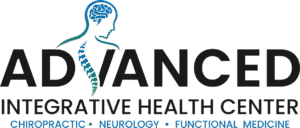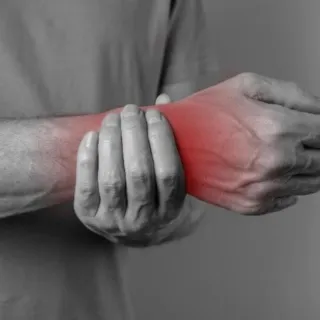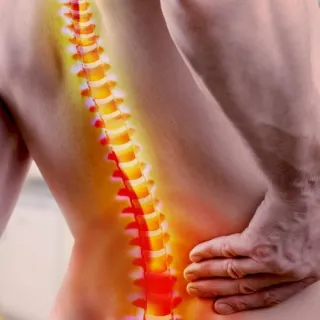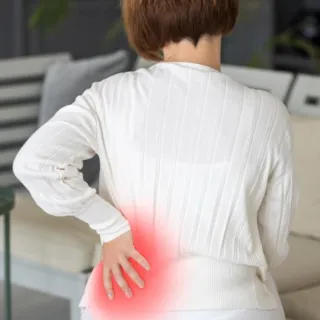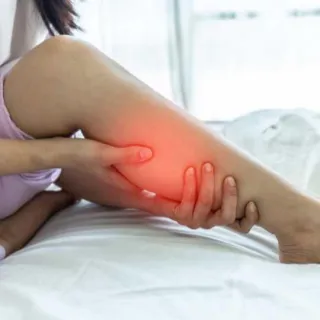Neck pain Treatment in Grand Rapids, MI
Learn How Our Knee Program Can Reduce Knee Pain...
- Regain Mobility and Stop Headaches
- Avoid Surgery and Medications
- Get Your Life Back Without Chronic Neck Pain
“When the body works better, life works better. That’s what we’re here to do.”
Who's This Perfect For?
Anyone Suffering From Any Of These Chronic Knee Pain Symptoms
✅ Limited Range of Motion: Difficulty fully bending or straightening your knee—like trouble squatting, kneeling, or fully extending your leg.
✅ Sharp or Aching Pain: Pain may hit as a deep, throbbing ache in the joint or a sharp, stabbing feeling when weight-bearing.
✅ Pain with Activity or at Rest: Discomfort may flare during walking, climbing stairs, or standing, and can even wake you at night or while resting.
✅ Swelling or Stiffness: Your knee may swell or feel stiff in the morning or after sitting, making it tough to move freely.
✅ Instability or Locking: You might feel your knee giving out, buckling, locking in place, or catching—signs that something inside the joint may not be working right.
How We Can Help
The 4 Step Knee Restoration System™ is a comprehensive treatment plan aimed at addressing knee discomfort and improving overall knee health
Before Treatment
- Pain while walking or climbing stairs
- Stiffness in the morning or after sitting
- Avoids activity due to discomfort
- Constant dull or sharp pain
- Swelling or tenderness around the knee joint
- Relies on ice, braces, or medication daily
- Fear of the knee "giving out" or locking
After Treatment
- Walk with ease free from chronic pain
-
Improved flexibility and full range of motion
-
Confidently returns to daily movement
-
Significant pain relief—often down to zero
-
Reduced inflammation and joint irritation
-
Uses little to no external support
- Increased joint stability and confidence
STILL NOT SURE?
Frequently Asked Questions
What is Knee Pain?
Knee pain is a common discomfort or pain experienced in or around the knee joint. It can arise from various issues like injuries to the ligaments, tendons, or fluid-filled sacs that surround the knee joint, as well as the bones, cartilage, and ligaments that form the joint itself. It can affect people of all ages, and severity can range from a minor nuisance to a severe, chronic condition, significantly impacting quality of life and mobility.
What Causes Knee Pain?
Knee pain often originates from injuries such as ligament tears, fractures, or meniscus damage. Mechanical issues like dislocated kneecaps or iliotibial band syndrome can also cause discomfort. Various types of arthritis, including osteoarthritis and rheumatoid arthritis, are common culprits. Overuse from repetitive motion or high-impact activities often leads to pain, as well. Less commonly, infections or diseases like lupus may be responsible. Each cause affects the knee differently, leading to the wide range of symptoms and severities seen in knee pain.
Can Knee Pain Be Reversed?
What outcomes can patients expect from your program?
Common Causes Of Knee Pain
Knee pain can happen for a lot of reasons, kind of like how a toy can break if it’s used too much or used the wrong way. Imagine your knee is like a hinge on a door – it helps you walk, run, and jump. But sometimes, things can go wrong.
Knee pain is a common issue for seniors due to several factors related to aging and wear and tear.
Here are some common knee pain problems that seniors often experience:
Osteoarthritis: This is the most common reason seniors might feel pain in their knees. It happens when the cushiony material (cartilage) that protects the ends of bones in the knee wears down over time. This can make moving the knee painful as there’s less of a cushion.Rheumatoid
Arthritis: This is a type of arthritis where the body’s immune system attacks its own tissues, including the knees. This can cause pain, swelling, and stiffness.
Tendinitis: This is when the tendons, which are the thick cords that attach muscles to bones, become irritated and inflamed. Seniors might get this from doing the same movements over and over, like walking or climbing stairs.
Bursitis: In the knee, there are small fluid-filled sacs called bursae that help cushion the outside of the knee joint. When these get inflamed, usually from kneeling a lot or from impact, it can cause pain and swelling.
Meniscus Tears: The meniscus is a piece of cartilage that acts as a shock absorber between your thigh and shin bones. A tear can happen when seniors twist their knee while the foot is planted on the ground, leading to pain, swelling, and difficulty moving the knee.
Gout: This is a type of arthritis that can cause sudden, severe attacks of pain, swelling, and redness in the knee. Gout happens when uric acid builds up in the blood and forms sharp crystals in the joint.
These conditions can lead to different types of knee pain, like aching, sharp pain, or stiffness. It’s important for seniors experiencing knee pain to consult with a healthcare provider for an accurate diagnosis and appropriate treatment.
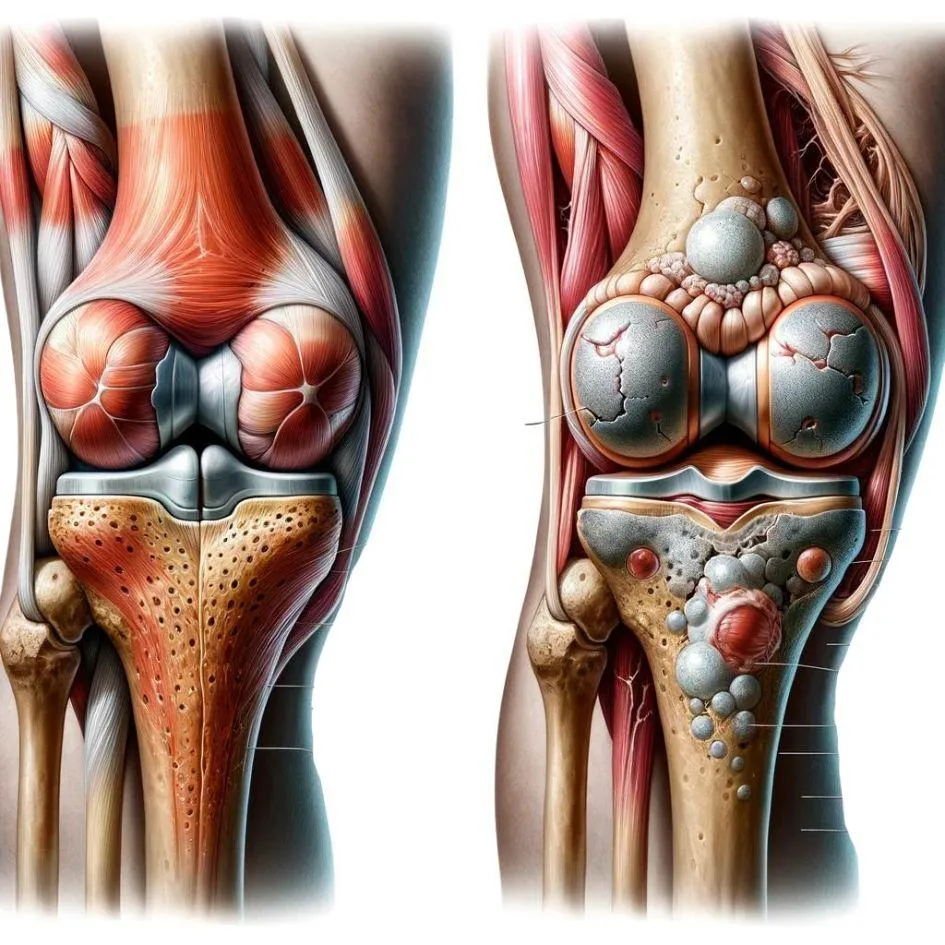
Other Services
Carpal Tunnel
Carpal tunnel syndrome is a condition that causes numbness, tingling, or weakness in your hand due to pressure on the median nerve in your wrist. This nerve runs from your forearm through a passageway in your wrist called the carpal tunnel to your hand. It’s often the result of a combination of factors that increase pressure on the median nerve and tendons in the carpal tunnel, rather than a problem with the nerve itself.
Common causes include repetitive hand motions, wrist position, anatomy of your wrist, or health conditions.Pain from carpal tunnel syndrome is typically felt in the hand and wrist, but it can also radiate up the forearm.
The discomfort is often most pronounced in the thumb, index, middle, and part of the ring fingers. It’s common for individuals to experience numbness, tingling, or a burning sensation in these areas, especially at night or early in the morning. Some people may also feel a sense of weakness in their hand or have difficulty holding objects.
We can treat carpal tunnel syndrome (CTS) using a variety of non-surgical methods aimed at reducing pressure on the median nerve and improving wrist and hand function.
If you’re experiencing pain, we can help. Call us at (616) 888-2416 or click here to schedule our Chronic Pain Assessments online today!
Disc Problems, Herniated, Bulging & Degenerated Discs
Having herniated or bulging discs refers to a condition where the discs, which are the cushioning pads between the vertebrae of the spine, start to protrude out of their normal boundary (bulging) or break open (herniated). This can occur due to age-related wear and tear, injury, or strain.
When these discs herniate or bulge, they can put pressure on the nearby spinal nerve roots, leading to pain, numbness, or weakness in the areas of the body that the affected nerves serve.
Common symptoms include sciatica, back pain, and changes in sensation or muscle strength in the limbs.Herniated or bulging discs can be caused by several factors:
✅ Age-related wear and tear: As you age, your spinal discs lose some of their water content, making them less flexible and more prone to tearing or rupturing with even a minor strain or twist.
✅ Physical strain or injury: Lifting heavy objects improperly, sudden movements, or physical trauma can cause the discs to bulge or herniate.
✅ Repetitive activities: Engaging in repetitive movements, especially those involving twisting or bending of the spine, can stress the discs and lead to bulging or herniation.
✅ Poor posture and body mechanics: Poor posture or sitting for extended periods, especially with incorrect spinal alignment, can increase pressure on the spinal discs and contribute to their deterioration.
If you’re experiencing pain back pain in Grand Rapids, MI, we can help. Call us at (616) 888-2416 or click here to schedule our Chronic Pain Assessments online today!
Chronic Headaches
Headaches can arise from a bunch of sources, intertwining the physical with the psychological. Often, they’re the body’s response to stress, dehydration, or lack of sleep, signaling the need for rest or hydration.
In other cases, environmental triggers like bright lights, loud noises, or changes in the weather can set off a headache. Certain foods, caffeine withdrawal, and alcohol can also be culprits.
Beyond lifestyle factors, headaches might hint at underlying medical conditions, from sinus infections to high blood pressure, neck or spine issues, or more severe issues like migraines or cluster headaches, where the pain is not just a nuisance but a significant disruption to daily life.
Understanding the root causes is crucial for effective treatment and relief. If you’re experiencing chronic headache pain in Grand Rapids, MI, we can help. Call us at (616) 888-2416 or click here to schedule our Chronic Pain Assessments online today!
Sciatica
Sciatica is a condition characterized by pain that radiates along the path of the sciatic nerve, which extends from the lower back through the hips and buttocks and down each leg.
Typically, sciatica affects only one side of the body and is often caused by a herniated disc, bone spur on the spine, or narrowing of the spine (spinal stenosis) pressing on the nerve.The pain associated with sciatica can vary widely, from a mild ache to a sharp, burning sensation or excruciating discomfort. It may be accompanied by symptoms like numbness, tingling, or muscle weakness in the affected leg and foot.
If you’re experiencing sciatica pain in Grand Rapids, MI, we can help. Call us at (616) 888-2416 or click here to schedule our Chronic Pain Assessments online today!
Arm or Leg Pain
Arm and leg pain can stem from a variety of causes, including nerve damage, joint inflammation, muscle strain, or even systemic health issues like diabetes or circulatory problems.
Such discomfort might also result from overuse, injuries, or underlying conditions such as arthritis or sciatica. We can help address these issues by realigning the spine and joints to reduce pressure on nerves and improve musculoskeletal function and holistic therapy that complements chiropractic care by promoting muscle relaxation, improving circulation, and fostering an overall sense of well-being.
Our combined approaches not only aim to alleviate immediate pain but also to tackle the root causes and prevent future discomfort, leading to a more balanced recovery so you can start finding relief from the pain.
If you’re experiencing arm or leg pain in Grand Rapids, MI, we can help. Call us at (616) 888-2416 or click here to schedule our Chronic Pain Assessments online today!
Scoliosis
Scoliosis is a medical condition characterized by an abnormal lateral curvature of the spine. It can appear as either a single curve shaped like a “C” or as two curves shaped like an “S.”
The curvature can place extra stress on the discs between the vertebrae, leading to disc degeneration or herniation, which can cause pain and discomfort. In more severe cases, the abnormal curvature can affect the body’s internal organs, leading to respiratory or cardiovascular issues, which can further contribute to discomfort and health complications. Symptoms may include uneven shoulders, one shoulder blade that appears more prominent than the other, uneven waist, or one hip higher than the other.
We can help manage scoliosis by providing spinal adjustments aimed at improving the spine’s alignment and function. While chiropractic care may not cure scoliosis, it can offer significant relief from pain and discomfort associated with the condition. We may also integrate other therapeutic methods such as targeted exercises, postural advice, and stretching to strengthen supportive muscles and enhance spinal health.
This comprehensive approach can help reduce symptoms, improve posture, and enhance the overall quality your life.
If you’re experiencing scoliosis pain in Grand Rapids, MI, we can help. Call us at (616) 888-2416 or click here to schedule our Chronic Pain Assessments online today!
Whiplash And Car Accident Injuries
Whiplash is most commonly received from riding in a car that is struck from behind or that collides with another vehicle or object. When the head is suddenly jerked back and forth beyond its normal limits, the muscles and ligaments that support the spine and head can be overstretched or torn.
The soft, pulpy discs between spinal bones can bulge, tear or rupture. Vertebrae can be forced out of their normal position, reducing range of motion.The spinal cord and nerve roots in the neck can get stretched and irritated.
While occupants can suffer considerable soft tissue injury, the car may only be slightly damaged.The resulting instability of the spine and soft tissues can cause headaches, dizziness, blurred vision, pain in the shoulder, arms and hands, reduced ability to turn and bend, and even low back problems.
As the body attempts to adapt, symptoms may not appear for weeks or even months later.The chiropractic approach to these types of injuries is to use specific chiropractic adjustments to help return spinal function. After a thorough examination and case history, the doctor will recommend a series of visits to help restore proper motion and position of the spinal bones. If caught early enough, inflammation can be reduced and scar tissue can often be minimized.
If you’re experiencing whiplash pain in Grand Rapids, MI, we can help. Call us at (616) 888-2416 or click here to schedule our Chronic Pain Assessments online today!
Why Choose Us
We strive for excellence in chiropractic and holistic care.
We blend innovation with tradition to transform your health journey, focusing on finding the root cause of your concerns so you can get better, and start living life again.
At our clinic, we’re not just about standard adjustments; we’re pioneers in holistic healing, addressing chronic pain at its core.
Whether you’re dealing with neuropathy pain from diabetes or chemotherapy, or struggling with the challenges of frozen shoulder, plantar fasciitis, or knee pain, we’ve got the tools to bring relief without resorting to surgery. But our mission goes beyond just treatment – we’re here to empower you with knowledge and solutions.
That’s why we’re thrilled to introduce our exclusive Chronic Pain Assessment, a comprehensive roadmap designed to understand and overcome your pain.
Take the first step today and sign up for our New Patient Special, the Chronic Pain Assessment because your journey to wellness and pain-free living begins here.
